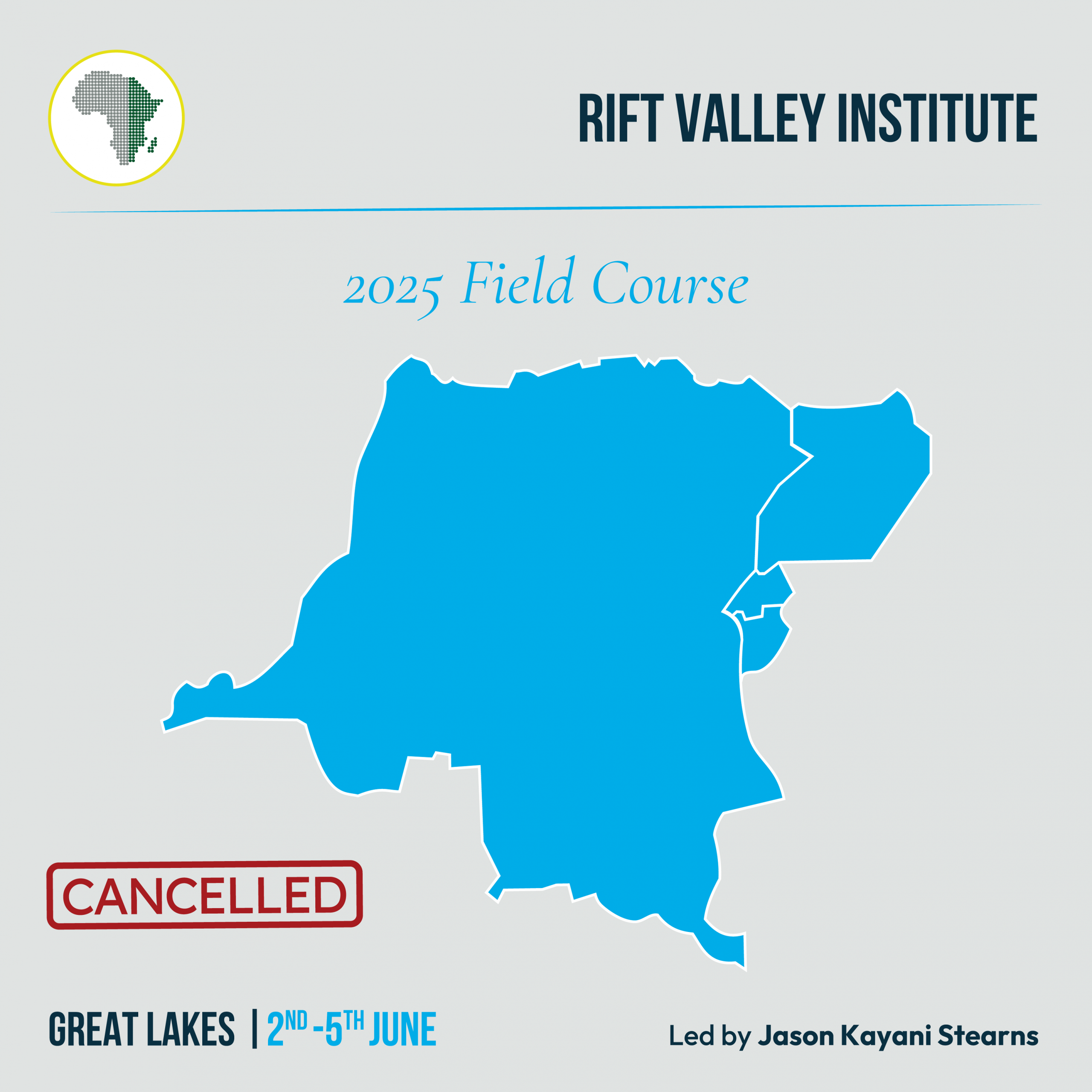
NOTE: Owing to unforeseen circumstances, the Great Lakes course will no longer take place.
THEME: INTERLOCKING CRISES IN THE GREAT LAKES
Led by Jason Kayani Stearns
The Great Lakes region of Africa faces its most severe political crisis in more than twenty years. The M23 crisis in the eastern DRC has displaced close to 3 million people. While the UN peacekeeping mission (MONUSCO) prepares to withdraw from the DRC, there is little sign of a functional peace process to address both immediate and root causes of the conflict. The conflict also features heavy involvement by Rwanda, Uganda and Burundi, and has drawn in the East African Community, the African Union and the Southern Africa Development Community. Other challenges are on the horizon. Succession battles in Congo and Uganda promise to render the upcoming elections in both countries contentious, while the polls in Burundi will test political stability there, especially given the gloomy economic situation.
The 2025 Great Lakes Course will explore the political economy of these countries, their governance challenges and the importance of shifting global geopolitics, as well as debate paths toward a more equitable and peaceful future.
Key Teaching Team
Jason Stearns | Associate Professor at Simon Fraser University, Founder of Congo Research Group at New York University
Jason Stearns is associate professor at Simon Fraser University and founder of the Congo Research Group at New York University. He has spent the past 24 years researching the politics and economy of the Democratic Republic of the Congo, as a writer, academic, and analyst. He is the author of two books: Dancing in the Glory of Monsters: The Collapse of the Congo and the Great War of Africa (Public A airs, 2010) and The War That Doesn’t Say Its Name: The Unending Con ict in the Congo (Princeton University Press, 2022).
Moses Khisa | Associate professor at North Carolina State University
Moses Khisa is associate professor of political science at North Carolina State University, a Research Associate with the Centre for Basic Research in Kampala, Uganda and weekly columnist for Uganda’s Daily Monitor newspaper. He is the editor of Autocratization in Contemporary Uganda (Bloomsbury, 2025) and the author, with Rita Edozie, of Africa’s New Global Politics (Lynne Rienner, 2022).
Fred Bauma | Executive Director, Ebuteli
Fred Bauma is the executive director of Ebuteli, a research institute based in Kinshasa working on con ict, governance, and Congolese politics. He is also cofounder of AfriKKi, a network of social movements on Africa and a member of Lucha, a leading pro-democracy movement in the DRC. Fred is also a senior fellow at the Center on International Cooperation at New York University.
Michael Kavanagh | Journalist
Michael J. Kavanagh is an American journalist who has reported on Central African politics and economics for more than two decades. Since 2009 he’s worked primarily for Bloomberg, covering daily news from the region and working on long-term investigations into nancial malfeasance. He’s previously contributed to The Economist, the BBC, the New York Times, Slate, and numerous public radio and television shows in the US.
Assumpta Mugiraneza, | Writer and Director of IRIBA
Assumpta Mugiraneza is a Rwandan author and researcher on subjects related to the genocide against the Tutsi. She is a co-founder and Director of IRIBA Center for Multimedia Heritage in Kigali, Rwanda. She has worked for thirty years on reconciliation, history, and memory in Rwanda.
Willy Peter Nindorera | Researcher and Independent Consultant
Willy Peter Nindorera is a Burundian researcher and independent consultant. His research for the last twenty years has been mainly focused on thematic areas like security sector reform, media, governance, human rights and con ict analysis. He has worked for or with the International Crisis Group; Centre d’Alerte et de Prévention des Con its( CENAP); the North-South Institute; Clingendael; the Nordic Africa Institute; the Institute for Security Studies; Berghof Foundation; the Rift Valley Institute: Levy Mwanawasa Regional Centre on Democracy and Good Governance; Congo Research Group
Course Outline
DAY 1 | War, Memory and Violent Conflict | Monday, 2 June 2025
• The historical backdrop to the present
• The hangover of colonialism: Land, ethnicity, and governance
• Whose history: memory and the power of narratives
DAY 2 | DRC: The nexus of violence, politics, and growth | Tuesday, 3 June 2025
• The M23 crisis and its regional dimensions
• Civil society, media, and political opposition in Kinshasa
• The political economy of mining
• Resources, conservations, and mining
DAY 3 | Burundi and Rwanda: Estranged twins | Wednesday, 4 June 2025
• The CNDD-FDD: The challenges of a rebellion turned ruling party
• The Burundian political economy
• Rwanda’s political and economic models
• Reconciliation and memory in Rwanda and Burundi
DAY 4 | Uganda, the region & geopolitics | Thursday, 5 June 2025
• The history and present of the NRM
• Oil in Uganda
• The unfulfilled promises of the EAC and ICGLR
• Shifting geopolitics: New and old actors in the region
What Alumni Say
‘An excellent course, in particular I appreciated the historical context and perspectives from the political economy and land rights issues. Teachers were excellent: clear, good powerpoints and good presentations.’ – Maaike van Vliet, Embassy of the Netherlands, Bujumbura, Great Lakes Field Course
‘The course exceeded my expectations in several ways, not least the extensive in-depth knowledge of the panelists…What I learned from the course will be an enormous help in my continuing work as Editor of International Affairs at Chatham House and with furthering links and the exchange of information with outside organizations.’ – Caroline Soper, Chatham House
‘Very informative and enlightening: both the lectures and offline conversations with the lecturers and fellow participants. I go away with a better understanding and picture of the issues and a larger network on which to draw to work on the issues.’ – John Kelley, US Embassy Kinshasa
The fee for the course is USD 3,850.
Learn more about RVI’s education and training programme here.



